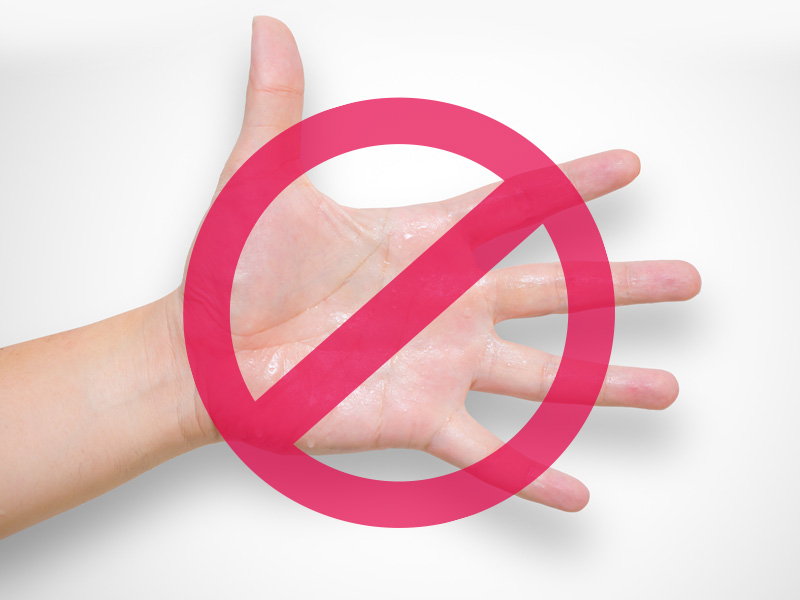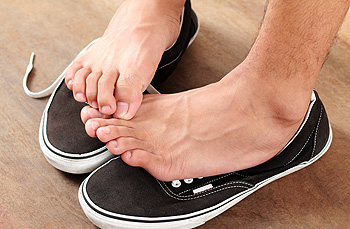Leading Dermatology Treatments for Hyperhydrosis of Hands and Feet: What You Need to Know
Leading Dermatology Treatments for Hyperhydrosis of Hands and Feet: What You Need to Know
Blog Article
Understanding the Source of Excessive Sweating and Its Effect On Life
Extreme sweating, likewise referred to as hyperhidrosis, is a condition that impacts a considerable section of the populace, yet its hidden causes and implications on everyday working stay rather enigmatic. While it is typically comprehended as a physiological action to manage body temperature level, the triggers for too much sweating can differ extensively amongst people, incorporating not only physical factors but psychological and also emotional elements. The effect of this condition extends beyond plain pain, usually affecting social communications and general high quality of life. By delving right into the origin creates of hyperhidrosis and discovering its diverse effects, a deeper understanding of this prevalent problem can be gotten, dropping light on the complexities that people facing extreme sweating navigate on a day-to-day basis.
Physiology of Sweat Glands
The law of sweat production, a critical physiological procedure, is largely controlled by the task of sweat glands dispersed throughout the human body. Sweat glands are categorized into 2 major types: eccrine and apocrine glands.
When the body temperature increases, either as a result of exercise, high temperature levels, or emotional anxiety, the worried system triggers the sweat glands to create sweat. This sweat is made up largely of water and electrolytes like sodium and chloride. The process of sweat production is crucial for maintaining the body's internal temperature within a slim, ideal array, highlighting the critical role sweat glands play in human physiology.
Triggers for Excessive Sweating
In comprehending the origin triggers of excessive sweating, it is important to recognize the triggers that can bring about this physical feedback. Too much sweating, additionally called hyperhidrosis, can be prompted by various factors, both ecological and physical. One typical trigger is emotional tension or stress and anxiety, which can promote the body's sweat glands to produce more sweat than is essential for cooling down. Physical physical effort, high temperature levels, and spicy foods are additionally recognized to activate extreme sweating in individuals prone to this problem. In addition, particular clinical conditions like hyperthyroidism, menopause, or diabetes can add to excessive sweating too.
In addition, drugs such as some antidepressants, opioids, and certain supplements can also act as triggers for hyperhidrosis. Understanding these triggers is important in handling excessive sweating effectively - Sweaty hands treatment. By identifying and attending to the specific triggers that motivate excessive sweating in a private, doctor can develop customized treatment plans to minimize this problem and boost the individual's quality of life
Medical Issue Associated
Related to too much sweating are various clinical conditions that can exacerbate this physical feedback. One common condition is hyperhidrosis, a condition identified by abnormally enhanced sweating that surpasses the body's thermoregulatory demands. This can manifest in focal areas like the palms, soles, underarms, or face, impacting an individual's high quality of life as a result of social shame and discomfort.
Additionally, endocrine disorders such as hyperthyroidism, diabetes mellitus, and menopausal warm flashes can likewise lead to excessive sweating. Hyperthyroidism creates an overproduction of thyroid hormones, increasing metabolic process and causing sweating.
In addition, infections like hiv, tuberculosis, and endocarditis have actually been related to night sweats, an usual signs and symptom understood to interrupt sleep and impact general well-being. These clinical conditions highlight the varied variety of underlying factors that can add to excessive sweating, demanding complete assessment and monitoring by health care professionals.
Mental and psychological Elements

Influence on Social Communications
Excessive sweating can have profound impacts on an individual's ability to involve conveniently in social communications. The visible indicators of sweat spots or wet spots on clothing can cause shame and self-consciousness, causing individuals to take out from social scenarios. This withdrawal can impact connections, limit social tasks, and hinder personal and expert growth.

Moreover, the anxiety and self-esteem problems coming from extreme sweating can impact interaction and social skills. Individuals may struggle to focus on conversations, participate in group activities, or express themselves confidently. This can lead to sensations of seclusion and isolation, as social links come to be testing to preserve.
Final Thought

While it is typically recognized as a physical action to regulate body temperature, the triggers for extreme sweating can differ extensively among individuals, encompassing not only physical variables however psychological and also emotional elements. By delving into the root triggers of hyperhidrosis and exploring its diverse effects, a deeper understanding of this pervasive concern can be acquired, shedding light on the complexities that individuals grappling with extreme sweating navigate on an everyday basis.
Physical physical effort, high temperatures, and spicy foods are additionally understood to trigger extreme sweating in individuals susceptible to this condition. By determining and addressing the certain triggers that prompt extreme sweating in an individual, health care companies can develop individualized therapy plans to minimize this problem and improve the person's quality of life.
Extreme sweating can have extensive effects on an individual's capacity to engage easily in social communications.
Report this page